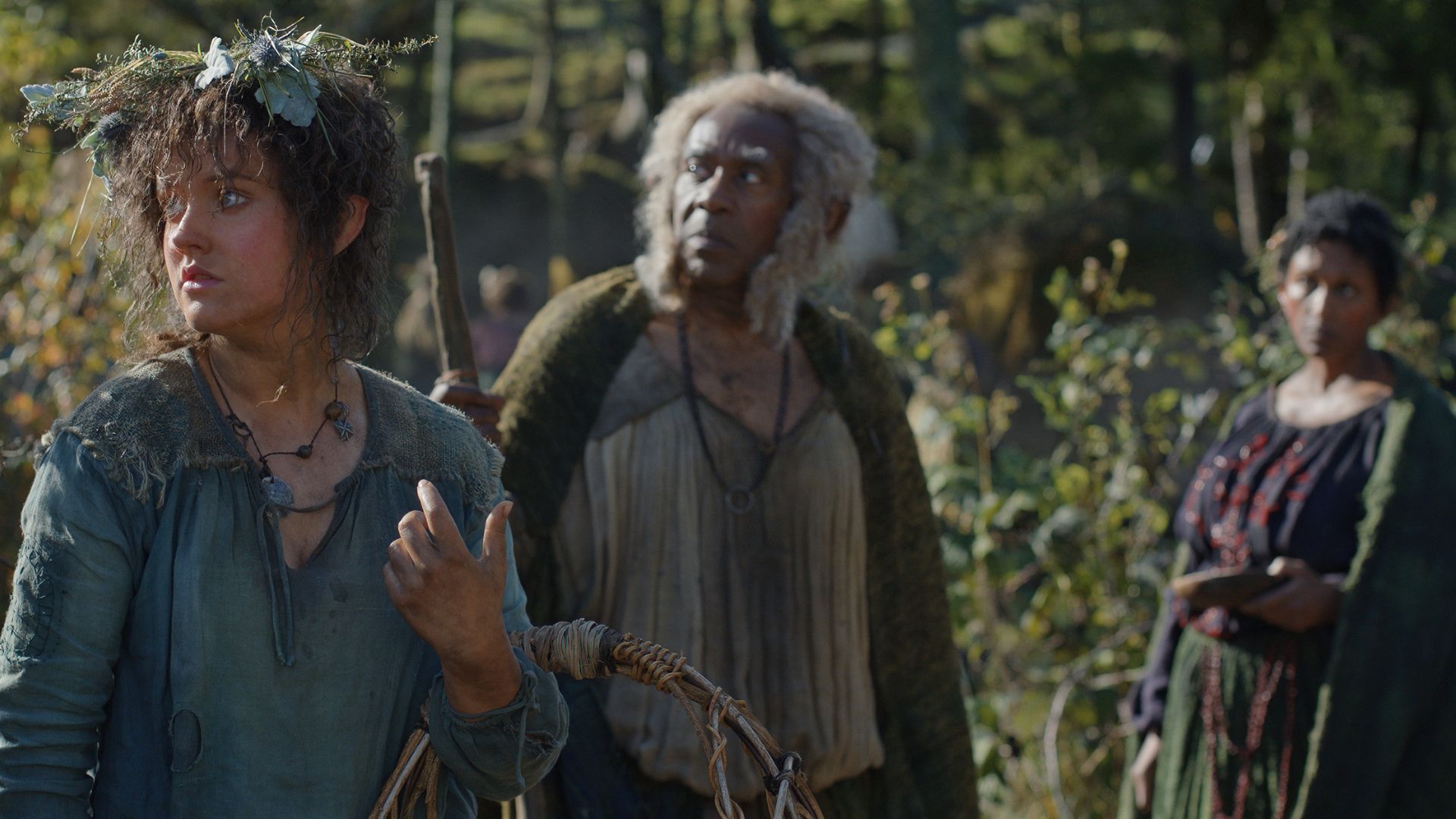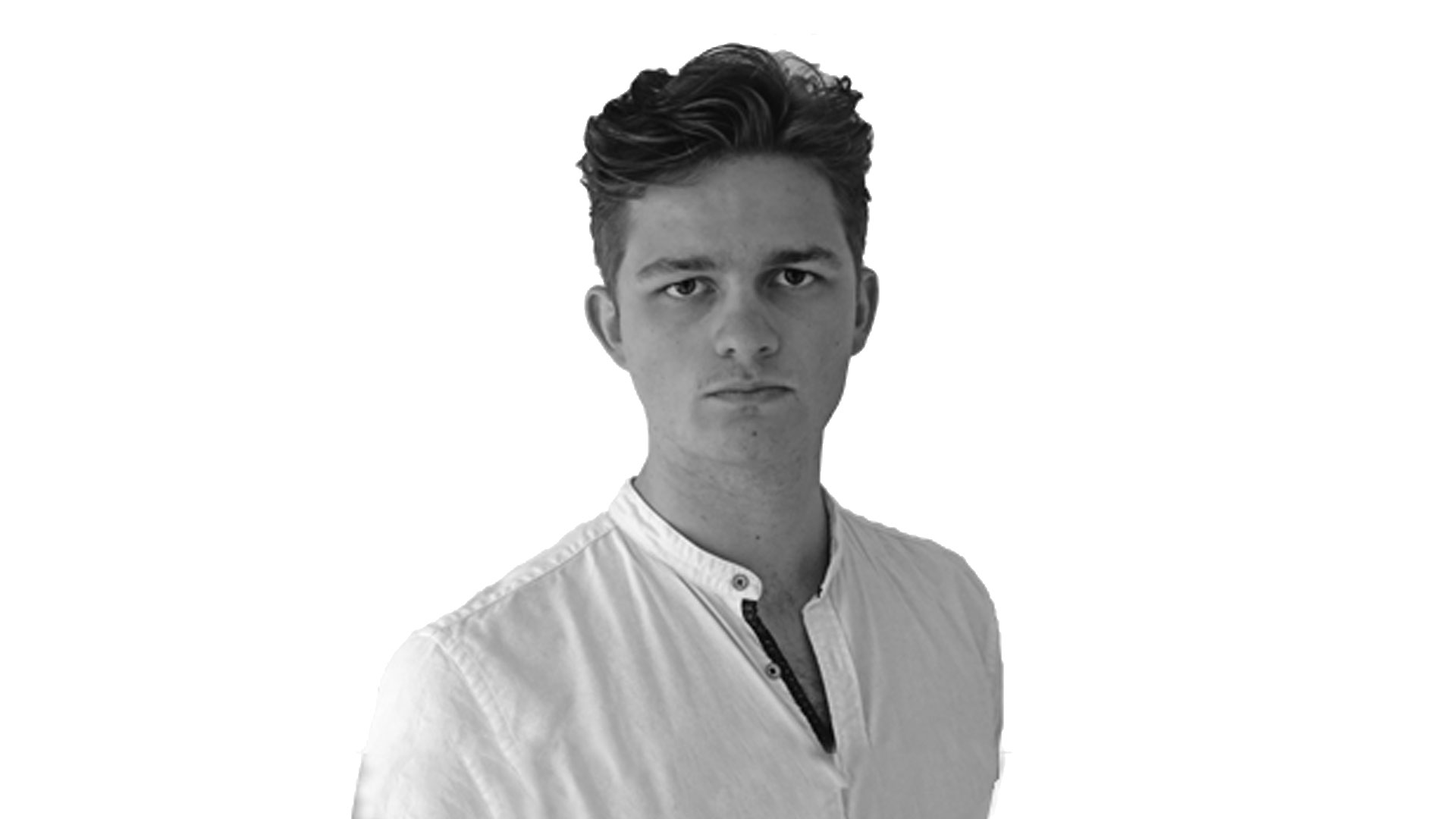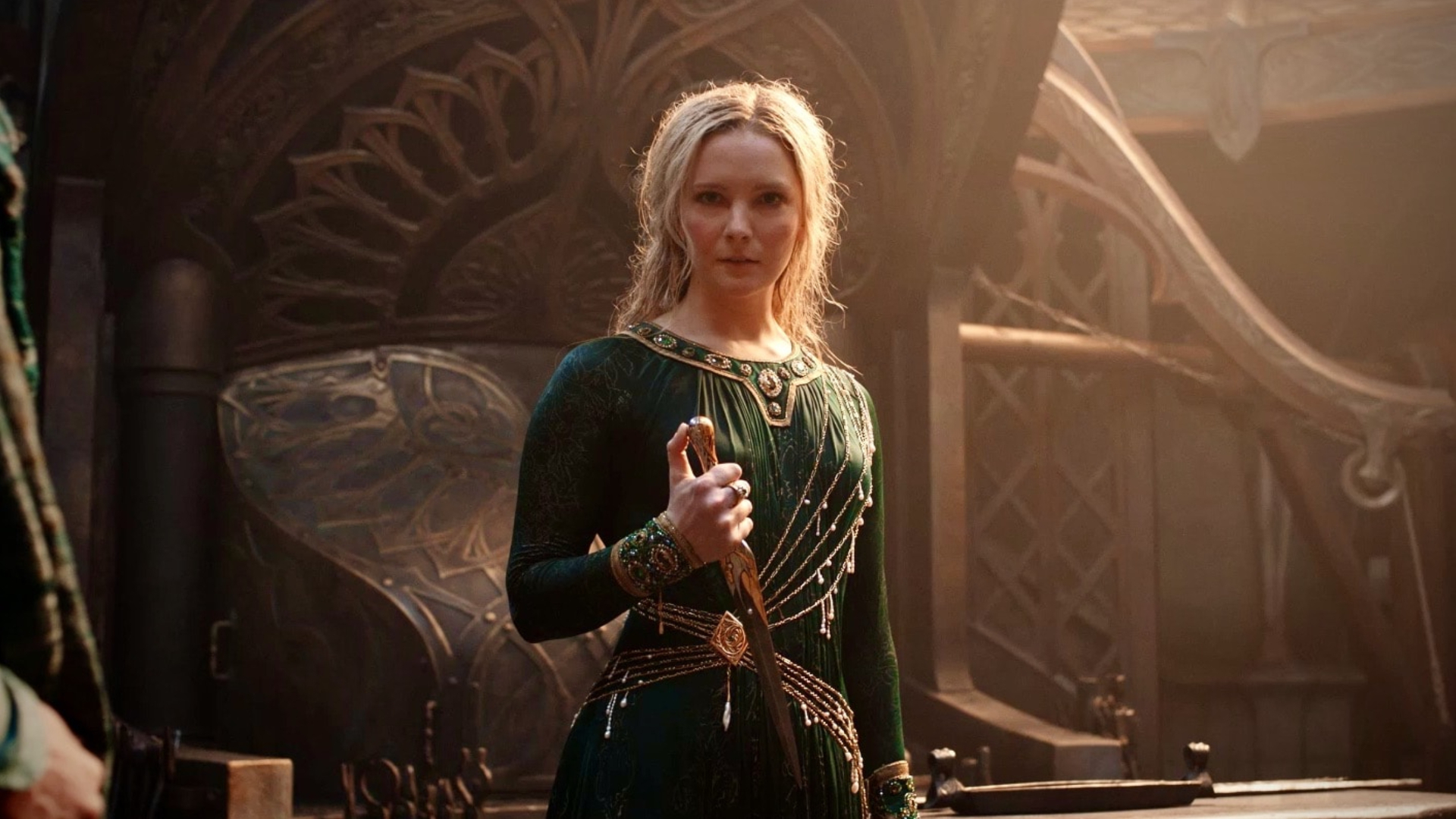GamesRadar+ Verdict
The Rings of Power's first season ends triumphantly as the fate of Middle-earth remains in the balance. Sauron is here – and it's glorious.
Why you can trust GamesRadar+
Warning: the following contains spoilers for The Lord of the Rings: The Rings of Power episode 8. Turn back if you haven't seen the new installment in Amazon's epic Tolkien adaptation.
Stories of good versus evil are only ever as good as their villain. No matter how heroic a protagonist may be, there must be a greater antagonist to thwart their plans. Otherwise, when the hero finally accomplishes their quest, we do not have the satisfaction of a hard-fought victory. Tolkien's work gave us the ultimate villain: Sauron, the embodiment of evil, an almighty Maiar with an unquenched thirst for power. Even his minions, the Orcs of Mordor, are horror personified – inhumane creatures with a hunger for manflesh. There's little need for nuance; we can all understand the stakes.
The Rings of Power does things a little differently. Sauron's not a fiery eye in the sky, but a man. And not just any man, but one who has been under our noses this whole time. Halbrand is Sauron. The Dark Lord has been misleading Galadriel, slowly drawing out her malevolent side. After she discovers his true identity, he offers her the ultimate gift: dominion over Middle-earth. We've seen this happen before – when she was offered the One Ring by Frodo in The Fellowship of the Ring – and she rejected it then. This time, we've been through a true journey with the younger Galadriel. We've seen her killing trolls, promising to exterminate Adar, and helping Halbrand. There's a genuine fear that she may fall for Sauron's tricks (even if we know she will eventually come around to the side of good). She refuses, though not without leaving us with some questions about her character. Even after breaking free of Sauron's visions of a better time, where her brother still lives and has found peace, she still allows the forging of the three rings for Elven-kings under the sky, a storyline teased throughout the season. Why would she not stop Celebrimbor? Are the rings not a trap? Is there no room for the Elves to discuss these revelations?
Galadriel, the head-strong, battle-hardened warrior has much to reckon with going forward. Morfydd Clark has played her as a tenacious, unflinching character who's very much an elf, not a human. And though she may have thousands of years behind her, there's still a lack of wisdom on occasion. Halbrand saw exactly that when they were in Númenor, recognizing that she was unable to do proper politicking. That's also what left her so susceptible to manipulation. There's a long way to go until she's the fair, wise queen of Lothlórien.
How Elrond will react to Galadriel's flaws being on full display remains to be seen. Robert Aramayo has been the season's MVP, capably being a stoic, yet still often naive presence. His reaction as Galadriel returns, when she should be living in Valinor, is subtle yet masterfully done. It's a shame we've had to bookend the season with Galadriel and Elrond together, as they have been at their best when together.
Still, the journey has led to an exquisite reveal. It's a risky move having Sauron play such a central role this season without being named as such. Yet, rather than being the villain we're used to, this Sauron has reason and motivation. Taken at face value – if we pretend not to know Sauron's fate – you may even think there's a chance of him turning good. After all, this is a man (can we call him that?) who was defeated by Adar and struck out of Middle-earth; a man who found himself stuck on the Sundering Seas, hoping to start a new life in Númenor (or, at the very least, to regroup and strategize and plan his next move from Númenor). Only his chance meeting with Galadriel brings him back to the continent. It's just as Gil-galad predicted in the opening episode: Galadriel inadvertently amplifies the one thing she sought to destroy.
Evil, of course, never sleeps. It waits. And Sauron has waited. Though forced to reveal himself to Galadriel, Sauron's plan has been enacted just enough to reach a point of no return. There's a question of how much Sauron has improvised and how much was pre-planned – did he want to join Númenor's blacksmith's guild to forge rings there? Or did he see the mithril and take a chance? Whatever the case, evil has stirred in an unexpected way, and it's a breathtaking new take on Tolkien that still feels at home in the author's world.
That's not to say Tolkien never dealt in shades of gray. Indeed, the opposite is true. Tolkien often forced characters from diverging paths together in order to exemplify their opposing views. Just look at Legolas and Gimli, an elf and a dwarf who make peace on their adventure, or the near collapse of Gondor under the stewardship of Denethor II. These characters are not pure evil, and they're not all good, although they often end up leaning more one way than the other (it should be noted that, before the First Age, even Sauron was good).
The Rings of Power keenly borrows from Tolkien's ethos with Halbrand, transforming a character who could have gone on an Aragorn-like trajectory into the show's villain. The same, but in reverse, happens with The Stranger. In the episode's opening misdirect, Daniel Weyman's meteor man is named Sauron by a bunch of cultists. Yet, Nori has faith that he cannot be evil. He helped the Harfoots. He has goodness in him. And we see that goodness overcome The Stranger's own doubts about himself. He may have been named Sauron by these creepers, but he refuses the title and ferociously sends them back to the Unseen World. "I am good," he exclaims, perhaps a little too bluntly.
There's really little doubt The Stranger is Gandalf. We now know that he's a wizard, and he tells Nori that, whenever she's in doubt, she should follow her nose – a line lifted directly from Gandalf in Fellowship of the Ring. But does his name really matter? Whether he's Gandalf or Radagast or one of the blue wizards, we're at a point where, whatever happens, it's fine – it's just exciting to know that he's heading to Rhûn with Nori.
To speak of the Harfoots' story without touching on Lenny Henry's Sadoc would be a disservice to the great actor. His character added mystery and intrigue to the Harfoots' tale, and his presence will be sorely missed. Poppy Proudfellow, the most Sam Gamgee-like of the lot, now has to carry their tale, and I just hope our little friends don't get into too much trouble with the wolves next season now they don't have a wizard to protect them.
The episode ends with Sauron looking over Mordor and smiling. It's a shot reminiscent of Frodo and Sam seeing the dark mountains at the end of Peter Jackson's Fellowship of the Ring, and there's that same sense of dread. Frodo had a long journey ahead of him, as does Sauron. It's the show's most exciting storyline, and the idea of seeing him face off against Adar, trying to reclaim his lands and his army, is wonderfully tantalizing. Where the first season was Sauron's origins story, hopefully the second will see him return to full power – and corrupt a few Dwarves and Men along the way. It's going to be a long wait between seasons.
The Rings of Power reflections

– It's a shame we didn't see more from Durin and Disa and Arondir and Bronwyn during the finale. They have all been such great characters, particularly the Dwarves, who feel a little short-changed this season. Hopefully, as we see the seven rings for Dwarven kings being forged, they will have their moment (and my money's on the looming Balrog having a small part to play in why they may need those rings).
– Isildur also remains MIA, an interesting decision seeing as anyone who has read the books/watched the movies knows the future king of Gondor lives. However, there's the possibility that Isildur, being in Mordor, may get mixed up in Sauron and Adar's eventual confrontation. Now that's an interesting idea.
– Charlie Vickers has had the unenviable task of playing an undercover Sauron for an entire season. And although many of us predicted Halbrand's true identity, that was not because Vickers did anything overtly Sauron – it's the little inflections that gave the game away. And that, really, is the mark of someone doing a great job; to create that kind of discussion. It will be exciting to see the actor fully embrace the character's dark side going forward.
– We spend a few brief moments on Númenor during the finale. The king is dead and Ema Horvath's Eärien has discovered the Palantir. The Númenor aspects of the show have been the weakest (which isn't saying much considering how great the rest has been) and that's perhaps because the story has not been as clear-cut as the others. There are so many Númenoreans, each with their own agendas, and few have been given ample screentime to get properly into their motivations, especially when Halbrand and Galadriel were hogging all the attention. No doubt the payoff will be huge (I mean, a great wave is going to come crashing down soon enough), but I hope the civil war about to break out on Númenor is clearly defined in the second season.
– Nori and the Harfoots have some beautiful dialogue at the end of the episode. And while Poppy could have happily followed Nori and The Stranger, fully embracing her Samwise Gamgee status as the main hobbit's best friend, she now has her own path to follow. Great stuff.
– And finally, thank you for reading along with my review of The Lord of the Rings: The Rings of Power's first season. It's been an extremely interesting series to analyze. It's a show unlike any other, so grand in scope and character. As I said above, it's going to be a long, long wait for a second season.
The Lord of the Rings: The Rings of Power is available now on Amazon Prime Video. After more Rings content? Check out our guide to the Lord of the Rings timeline and our interviews with the Rings of Power cast and showrunners.
More info
| Genre | Fantasy |

Jack Shepherd is the former Senior Entertainment Editor of GamesRadar. Jack used to work at The Independent as a general culture writer before specializing in TV and film for the likes of GR+, Total Film, SFX, and others. You can now find Jack working as a freelance journalist and editor.



